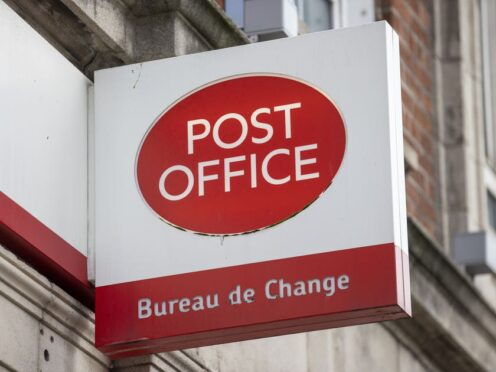
The former head of the union for subpostmasters has denied the organisation became “too close” to the Post Office and was “flush with money”.
George Thomson, former general secretary of the National Federation of Subpostmasters (NFSP), also denied lacking sympathy for those who were wrongfully convicted as a result of faults in the Horizon IT system.
Earlier this year, the Trades Union Congress said the Communication Workers Union (CWU) was blocked from effectively organising at the Post Office, claiming the NFSP was given funds by the Post Office.
Mr Thomson, who served as general secretary between 2007 and 2018, gave evidence at the Post Office inquiry on Friday.
Put to him by inquiry counsel Julian Blake that he became “too close” to the Post Office, Mr Thomson said: “No, I wasn’t.”
Mr Thomson later added: “We worked closely with the Post Office because we both needed to have a successful franchise – that’s the reality.”
The inquiry was shown an email sent on behalf of Mr Thomson in August 2013 which outlined plans for the Post Office and NFSP to sign a 15-year contract to represent all post office operators.
This included annual payments starting at £500,000 in 2013-14 and reaching £2.5 million from 2017 onwards to 2028.
Mr Thomson said it had taken “a lot of badgering” of then Post Office chief executive Paula Vennells to agree to the deal, and that her team “would have preferred the NFSP withered on the vine”.
Put to him by Mr Blake that they were significant figures, Mr Thomson told the inquiry the NFSP “took on new functions” as part of the agreement.
Put to him that the NFSP was financially dependent on the Post Office at a time when issues with Horizon were ongoing, Mr Thomson said the federation had lost 8,500 subpostmasters in the previous 12 or 13 years, and that the money was “replacing what used to be membership money”, adding: “It was never ever tied to Horizon.”
The inquiry was shown a Computer Weekly article from May 2009 which discussed the cases of several high-profile subpostmasters, including Sir Alan Bates.
The subpostmasters told the media outlet their union had “refused to help them investigate their concerns”.
Asked by Mr Blake why the NFSP was not helping them, Mr Thomson said the federation had to seek permission from the Post Office first.
He said: “We did fight their cases but we asked the Post Office. What are we to do as an organisation?
“Every case that was brought to us, we took it up with the Post Office.
“You’re trying to make out that somehow we were flush with money… That’s not correct.”
Mr Thomson said he had investigated 20 or 30 subpostmaster cases at the “highest level” during his time as general secretary, and would have tried to employ a compute expert had he known more about the issues with Horizon.
He told the inquiry: “I’ve been around a long time – suspensions have always taken place, prosecutions have always taken place, under the manual system as well.
“We had a franchise that was in crisis and we always tried to help people.”
On the Horizon IT system, Mr Thomson said: “It’s a strong system, it’s a well-used system, and I still support it systemically as being very robust.”
More than 700 subpostmasters were handed criminal convictions between 1999 and 2015 when errors in the Post Office’s Horizon IT system meant money appeared to be missing from many branch accounts when, in fact, it was not.
It has been branded the biggest miscarriage of justice in British legal history.

Enjoy the convenience of having The Sunday Post delivered as a digital ePaper straight to your smartphone, tablet or computer.
Subscribe for only £5.49 a month and enjoy all the benefits of the printed paper as a digital replica.
Subscribe